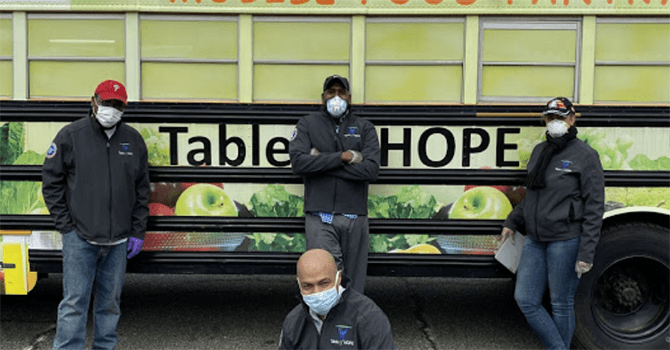The water rose quickly, fed by rain whipped by wind.
In late August 2011, Hurricane Irene roared up the East Coast and nearly destroyed Bethel Church of Morristown, New Jersey.
“I don’t think I’ve ever seen so much water gather in a city area,” said the Rev. Dr. Sidney S. Williams Jr., Bethel’s senior pastor. At the time of the flood, he’d been in the role less than a year.
The storm did such damage -- including to the organ, piano and walls -- that it cost almost $1.5 million to fix. The church had no flood insurance, and the congregation of about 75 active members couldn’t afford the repairs on its own.
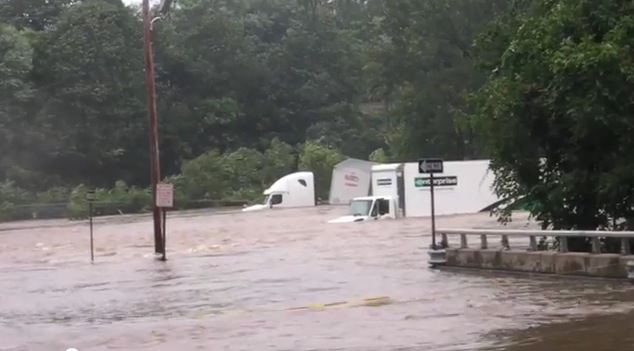
But Williams had a vision. If the congregation committed to creating a five-day-a-week free dinner for the community, he thought, they could get volunteers and donations from outside the church to rebuild the facility.
He was right. The disaster marked the beginning of a new mission for the church, which was founded in 1843. Since the flood, Bethel has expanded its community ministries, which include health screenings and other services.
Table of Hope, a nonprofit under the church’s Spring Street Community Development Corp., has become the leading distributor of food during the COVID-19 pandemic in Morris County, Williams said.
How do you measure success? What are the marks of a thriving congregation?
For Williams, the experience is an example of what can happen when the church serves more than just its own members.
“You cannot confine your ministry to the support you’re able to garner from the members of your church,” he said. “You can find yourself as a conduit or a catalyst to solving your community’s problems, meeting their needs in a way that far exceeds your capacity.
“When you focus on the real needs of the community, the community will rally around you.”
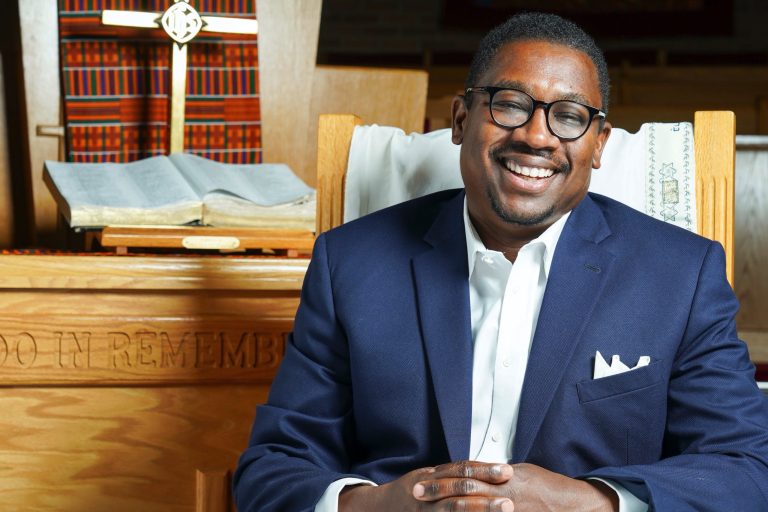
‘The poverty is here’
Williams has the quick, strong and precise cadence of a man destined to preach. He was born in Philadelphia in 1968 and gave his first sermon when he was 15. After hearing it, his friends thought he’d surely end up in the pulpit.
At first he didn’t pursue ministry; he earned a degree in finance from Howard University, went to work for Goldman Sachs as a bond trader and then got an MBA from the Wharton School of Business. He had a wife, with children on the way, and felt a strong need to provide.
Still, he felt the call to ministry, and he entered Wesley Theological Seminary in 2004. By 2008, he had accepted an assignment for $500 a month in one of South Africa’s most crime- and poverty-ridden areas, the Hanover Park neighborhood of Cape Flats.
Which life experiences have been most formative in your ministry? How have those influenced your congregation’s mission and values?
It was an experience that would inform the vision he carried to Bethel.
There were times when Williams literally had no food for his family. To his surprise, his neighbors -- who were in even greater need -- would knock on the door and bring the family a meal.
But the reverse was true, too. His daughters would stand at their front door and hand bread -- when they had it -- to hungry children who otherwise would have nothing to eat.
Watching that, Williams said, “brought home how much they literally had to pray for their bread.”
After 13 months in South Africa, the AME Church offered Williams a position in Morristown, New Jersey. He had made spiritual and personal connections in South Africa and appreciated how he could make a difference there.
But a church elder taught him another lesson.
He had been sent to South Africa so God could prepare him for ministry in the States, she told him. Williams realized that he was sent to the other side of the world “not to change their environment but so that environment can change me.”
His new home of Morristown sits in Morris County, one of the richest counties in the country. The median household income of over $110,000 a year is 40% higher than New Jersey as a whole.
Williams wondered: What can I do to make a difference here?
How well do you know your congregation’s context? What practices might help you listen and observe your surroundings more carefully?
But census tract 435, the area in which Bethel is located, isn’t nearly as prosperous as the county as a whole. And, while Morris County is 83% white, census tract 435 has 64% Hispanic residents; almost 60% of residents speak Spanish at home.
The tract lags in every economic indicator. Almost half of its residents have a household income of less than $50,000 annually. Nine percent of its children live in poverty, and the jobless rate is well above the county average.
In other words, it was the perfect place for Williams.
“There was no way I could sit here and not do something more,” he said. “So I started looking at the needs of this community. If you look carefully, there are people living in tents and outdoors, [several] dayworkers and immigrants living in one home. The poverty is here; you have to look at it.”
Paying it forward
The crisis that the storm created catalyzed his vision.
“Prior to the flood, I had a deep sense of regret about leaving South Africa and seeing the wealth of Morris County,” Williams said.
If your church were in crisis, where would you turn for help? What relationships or partnerships might you begin building today to create a network of support?
The flood led to a difficult transition for Bethel. First, Williams had to get the church cleaned up before mold started to grow. He asked for volunteers to help at a cleanup day and was surprised when Boy Scout troops, other churches’ members and community volunteers gave of their time.
“I had only been in the community eight months, and the church was pessimistic” about the volunteer response, he said. “But they came.”
He knew that in the long term, he would have to raise money from the community to repair the church.
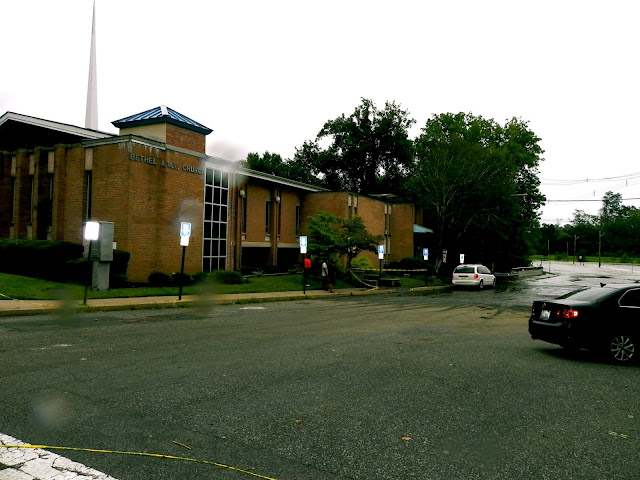
“I felt very strongly that if we were going to the community for support, we needed an impact statement to pay it forward. It was unreasonable to ask without a credible way to serve the community,” he said.
Williams then shared his vision: Bethel would start serving a free meal five days a week, Monday through Friday.
Some of the members didn’t agree. When Williams presented his vision, some left the church.
“The first skepticism was some of the officers didn’t want ‘those people’ in the church,” Williams said. Members recalled bad experiences with homeless people sleeping in the pews, uninvited, bringing hygiene and security issues.
Others wondered whether the small congregation could support feeding people five days a week.
But Williams had a different take. “It’s great we worship and believe together, but if we’re not living [the mission], what’s the point?”
Still, the adjustment was difficult at times.
“For many, the African American church is their sanctuary,” he said. “Here they separate themselves from the world’s problems. In a sense, we have disrupted that sanctuary. … Because they’re sharing the Bethel space.
“There have been hurdles from members who thought their spaces were being invaded from people who didn’t think, speak or worship like us.”
Who are your neighbors? What steps might you take to equip your congregation to venture into new and uncomfortable places?
For example, Williams reminded congregants who wanted an after-school program for African American youth that it would have to be for all children, including children in the Latino community. He began hosting exchanges with other churches so the members could better understand each other.
He attempted to start a bilingual service at Bethel in Spanish and English and told his congregation, “Look around, because this is what heaven’s gonna look like.”
His core argument that congregations should focus more on social impact than growth is explained in his book, "Fishing Differently: Ministry Formation in the Marketplace."
Others in the congregation supported his vision. Patricia Johnson, who has attended Bethel for 30 years, said those efforts speak to Williams’ leadership in the church and the community.
“It’s a part of charitable ministry, and I think that God looks favorably upon those that help our fellow man in whatever way we can. I think we are really expanding on that ministry,” she said.
Williams approached other congregations, civic clubs and the like. It was a local real estate trust that really made a difference -- the trust leaders met with Williams and volunteered to build the kitchen and contribute about $1 million of the rebuilding cost.
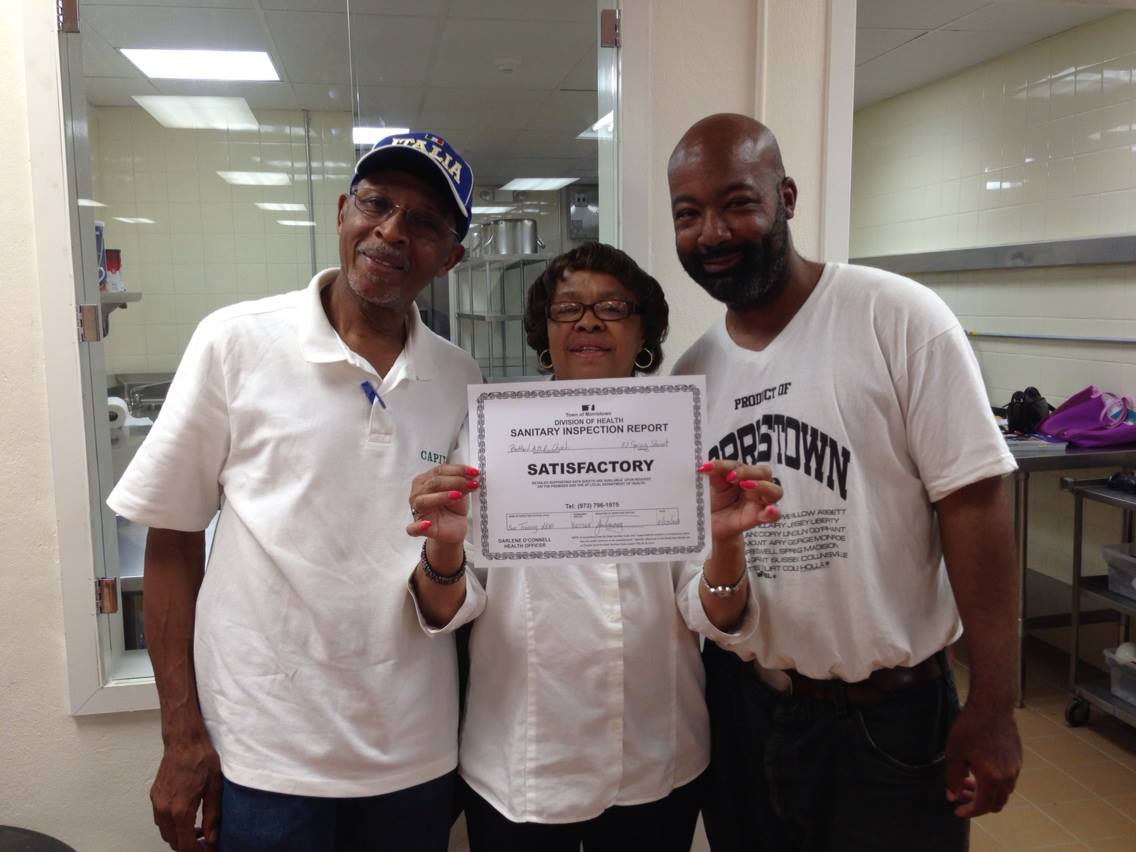
The rest of the money came from current and former church members, community organizations and grants. All told, it took two years for the church to reopen and the Table of Hope to launch in 2013.
Williams told his members he believed that the same community groups that helped clean up Bethel would support the community kitchen. At first, he made many phone calls to local groups seeking volunteers. Now he has a three-month volunteer waiting list.
A mobile food pantry makes its mark
Table of Hope opened in 2013, funded by a financial gift from a recently deceased church member. Those funds lasted until 2015. Community donations and grants now fund the Table’s $5,000 weekly operating costs, although a lack of funds has led to occasional temporary closures.
Because of the pandemic, Table of Hope hasn’t served a meal at the church since March.
But Bethel has opened its arms even wider. One of the church’s volunteers donated an old school bus, and the congregation raised $20,000 to retrofit it with refrigeration and turn it into a mobile food pantry.
The mobile pantry has made its mark throughout Morris County, offering more than 10,000 pounds of food a week, in partnership with the Community FoodBank of New Jersey.
It has delivered in areas like Roxbury Township, where the median household income sits at nearly $111,000 but 5% of the 22,000 residents live in poverty.

Table of Hope helps meet the increased food need during the pandemic, the township mayor, Bob DeFillippo, said in an email.
“The pandemic has made it difficult for people from diverse economic and social backgrounds to meet the needs of their families,” DeFillippo said. “Table of Hope has made it easier for residents to bridge the gap after a job loss or furlough.”
How has the pandemic affected your sense of mission? What kind of church do you want to be when the pandemic is over?
And of course hunger isn’t the only challenge facing people in the county. Bethel also provides free backpacks to children; annual community health days with free screenings for diabetes, high blood pressure and other ailments; and a program to end homelessness in Morris County.
When asked to evaluate his efforts, Williams said, “I think we’ve done a fairly decent job.”
“I think he’s selling himself very short,” said Grace Rhinesmith, the director of recreation for Jefferson Township, New Jersey. “Table of Hope has been a wonderful asset to our residents. They do an amazing job with the amount of food they bring in.”
Table of Hope has been to Jefferson Township three times in the second half of 2020. The third time, there was so much extra that the township provided food to 32 additional families, a nursing home and two food pantries.
None of the folks they serve may ever step into the rebuilt sanctuary. But that’s not the focus, Williams said. “It’s less about church growth and membership and more about social impact. There is no doubt we’re having a social impact.”
Questions to consider
Questions to consider
- How do you measure success? What are the marks of a thriving congregation?
- Which life experiences have been most formative in your ministry? How have those influenced your congregation’s mission and values?
- How well do you know your congregation’s context? What practices might help you listen and observe your surroundings more carefully?
- If your church were in crisis, where would you turn for help? What relationships or partnerships might you begin building today to create a network of support?
- Who are your neighbors? What steps might you take to equip your congregation to venture into new and uncomfortable places?
- How has the pandemic affected your sense of mission? What kind of church do you want to be when the pandemic is over?

